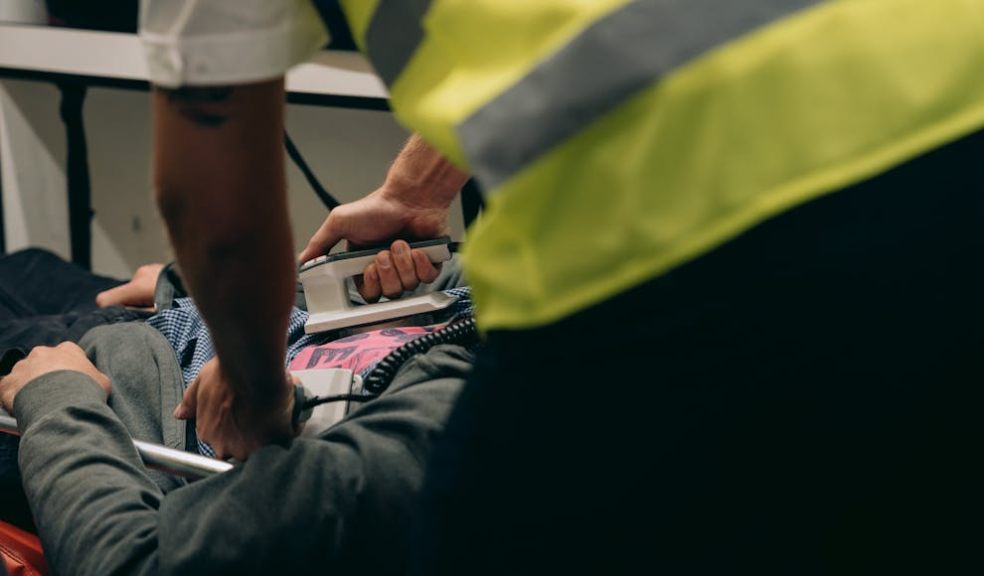
How Your ICE Contacts Can Save Lives in First Aid Situations
In the realm of emergency preparedness, one often overlooked aspect is the vital role that In Case of Emergency contacts play. These are not just names and numbers stored in your phone; they are potentially life saving links in the chain of first aid and emergency response.
Understanding how to effectively utilize your ICE contacts can significantly impact the outcomes of first aid situations. This article delves into the top five ways your ICE contacts can be instrumental in saving lives during emergencies, emphasizing the importance of first aid knowledge and preparedness.
Quick Access to Emergency Contacts
The golden hour, referring to the critical one-hour period following an emergency or traumatic injury highlights the essence of time in emergency care. During such times, first responders—paramedics, firefighters, and police officers—know the importance of time and often look for ICE information on a person's phone. This immediate access to your emergency contacts can be the difference between life and death. It ensures that medical professionals can quickly get in touch with someone who knows you, potentially gaining valuable information about your medical history or allergies that can influence the course of emergency treatment. This practice underscores the importance of not only having ICE contacts but ensuring they are easily accessible and up-to-date.
Moreover, the importance of ICE contacts extends into less life-threatening situations but where timely medical intervention is still crucial. For example, in the case of a diabetic individual experiencing hypoglycemia, the knowledge that first responders can gain from ICE contacts about the individual's condition and necessary treatment can prevent the situation from escalating into a more severe medical emergency.
The practice of keeping ICE contacts updated and easily accessible should be a routine part of personal safety measures for everyone. It's advisable to review and update these contacts regularly, ensuring that the information is current and that the designated contacts are still appropriate choices. Additionally, it's beneficial to have a conversation with your ICE contacts about their role and your medical history or conditions. This proactive approach not only prepares them for potential emergencies but also ensures they can provide the most accurate and helpful information to first responders.
Medical Information Sharing
In emergencies where every second counts, the ability to communicate your medical history can be compromised. This is where your ICE contacts come into play, serving as a crucial source of information about your health conditions, allergies, medications, and any other relevant medical information. This knowledge can guide first responders and medical personnel in choosing the most appropriate first aid measures, avoiding any treatments that could cause adverse reactions. For instance, knowing if someone is allergic to specific medications can prevent complications, making the role of ICE contacts indispensable in the administration of first aid.
Moreover, in situations where specialized medical intervention is required, the information provided by ICE contacts can help in the rapid mobilization of appropriate medical resources. For example, if a person has a known heart condition, emergency services can prioritize cardiac care from the outset, potentially arranging for immediate transport to a facility equipped with the necessary cardiology department.
Decision Making in Critical Times
When you're unable to make decisions for yourself due to incapacitation, your ICE contacts are often called upon to make critical medical decisions on your behalf. This highlights the importance of choosing ICE contacts who are not only trustworthy but also familiar with your healthcare wishes.
Their decisions can influence the first aid and medical care you receive, making it imperative to have discussions about your health care preferences with your chosen contacts beforehand. This aspect of ICE contacts plays a pivotal role in ensuring that your treatment aligns with your wishes, showcasing the profound impact of preparedness on the outcomes of first aid emergencies.
Providing Emotional Support
The aftermath of an emergency can be just as critical as the immediate response. Once the urgent medical needs are addressed, the presence of a loved one can provide immense emotional support. This support is crucial for recovery, as it can help alleviate stress and anxiety, making the healing process smoother.
The role of ICE contacts extends beyond the initial first aid response to providing comfort and reassurance in times of vulnerability. This emotional pillar underscores the multifaceted role of ICE contacts, highlighting their importance not just in the context of medical information and decision-making but also in providing psychological first aid. Click hereto learn more about psychological first aid.
Coordination of Post-Emergency Care
The journey to recovery often involves more than just the initial emergency treatment. Here, ICE contacts play a vital role in coordinating post-emergency care, whether it involves hospital visits, follow-up appointments, or arranging for home care.
They act as liaisons, communicating your status to other family members and friends, and ensuring that your care continues seamlessly. This coordination is crucial for effective recovery, making the role of ICE contacts indispensable in the broader spectrum of first aid and emergency care.
Enhance Your Readiness for Emergencies
In conclusion, the integration of ICE contacts into your emergency preparedness plan is a testament to the multifaceted approach required in first aid situations. It's not just about having the knowledge and skills to provide immediate care; it's also about ensuring that there is a support system in place to assist in all stages of an emergency.
By recognizing the importance of ICE contacts and fostering a culture of first aid awareness, you can significantly contribute to saving lives and enhancing the resilience of your community in the face of emergencies. Let's not wait for an emergency to remind us of the importance of being prepared. Take action today by setting up your ICE contacts and investing in first aid education. Together, we can make a difference in the critical moments that matter most.













